How the CIA’s Darkest Torture Secrets Were Exposed—and Covered Up
An investigator for the Senate Select Committee on Intelligence, Dan Jones, worked hard to get to the bottom of the agency’s torture program. Then-Attorney General Eric Holder and others conspired to keep the worst news hidden.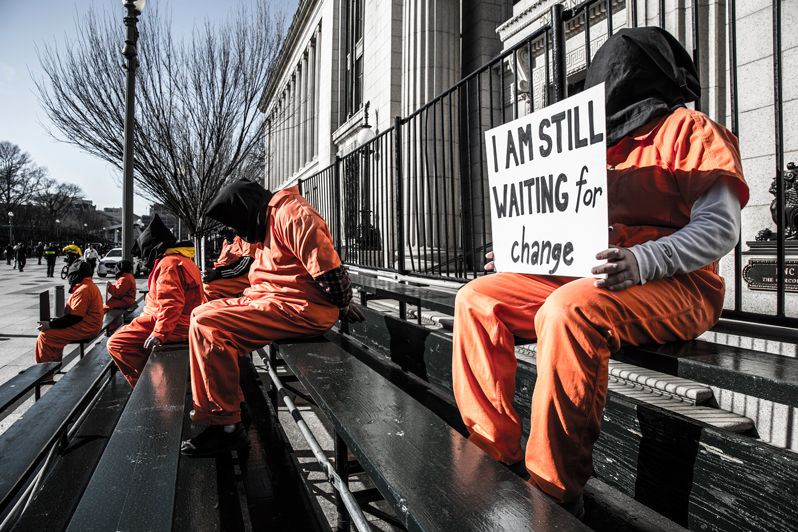
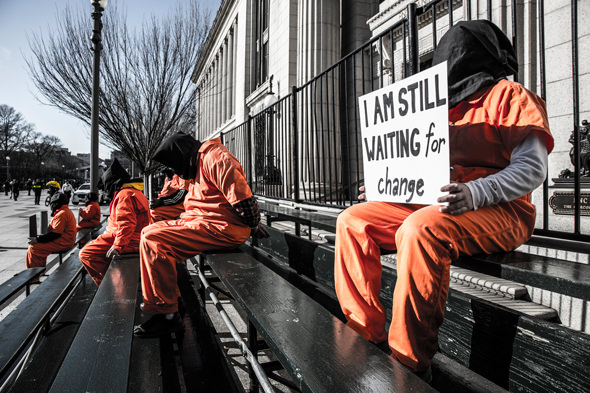
Justin Norman / CC BY-NC-ND 2.0
Editor’s note: John Kiriakou is a former CIA officer, former senior investigator for the Senate Foreign Relations Committee and former counterterrorism consultant for ABC News. He was responsible for the capture of Abu Zubaydah, then believed to be the third-ranking official in al-Qaida, in Pakistan in 2002. In 2007, Kiriakou blew the whistle on the CIA’s torture program, telling ABC News that the CIA tortured prisoners, that torture was official U.S. government policy, and that the policy had been approved by then-President George W. Bush. He became the sixth whistleblower indicted by the Obama administration under the Espionage Act—a law designed to punish spies. He served 23 months in prison as a result of the revelation and now writes a regular column for Truthdig.
The Guardian published a story Friday on Senate Select Committee on Intelligence (SSCI) investigator Dan Jones and his quest to get to the bottom of the CIA’s torture program. Jones’ hard work resulted in the Senate Intelligence Committee report on CIA torture. The article provides great insight into the day-to-day machinations between the SSCI and the CIA, although no new details on the torture program per se.
LISTEN: Robert Scheer and John Kiriakou Talk Government Double Standards
What the article does provide, however, is proof that then-Attorney General Eric Holder and others conspired to keep the worst news of the CIA’s torture crimes secret. They conspired to protect the CIA’s most notorious torturers. Holder also worked hard to make sure that as little news of the torture program as possible was released to the American people.
Jones, a whistleblower in his own right, admits in the article that he (probably “illegally”) removed a document from the CIA that, in the end, formed one of the main points of the torture report: that the CIA tortured its prisoners with a level of brutality that was heretofore unknown, that the agency covered up the torture and that it lied to both the congressional oversight committee and the president about the extent of the program and its efficacy.
READ: What Was Saudi Arabia’s Involvement in the 9/11 Attacks?
The document that Jones removed, known as the “Panetta Review,” was more than 1,000 pages long. Jones did not leak it. He locked it up in the SSCI’s secure spaces and provided it to Democratic members of the oversight committee. The CIA initially denied its existence. It later argued that the document was a “work product” and thus not meant to be turned over to the committee. In fact, it already had been turned over, but then it was subsequently deleted from the SSCI computer system.
The article’s author, Spencer Ackerman, notes that Jones and the committee faced a stacked deck from the very beginning:
In November 2005, a senior CIA official named Jose Rodriguez destroyed 92 videotapes depicting the brutal 2002 interrogations of two detainees, Abu Zubaydah and Abd al-Rahim al-Nashiri. Rodriguez’s tapes destruction remained a secret to his congressional overseers for two years, until a 6 December 2007 New York Times article revealed it; they barely even knew the CIA taped interrogations at all. Outrage was swift and, while tilted toward the Democrats, bipartisan, to include the eminences grises of the 9/11 Commission. Even the U.S. Justice Department began an ultimately fruitless inquiry. The Senate committee, then controlled by the Democrat (Jay) Rockefeller, demanded an explanation.
That explanation came from then-CIA Director Michael Hayden. He told the committee that there was no “evidence destruction,” because the CIA kept extensive records of its interrogations. If the committee needed data, the CIA would provide it.
What the CIA eventually provided stunned committee members. It included, for the first time, reports that Abu Zubaydah had been tortured so relentlessly that he would obey his interrogators “like a dog, when they would snap their fingers.” Zubaydah was “kept naked, filthy, stinking, shaking with fear, shoved inside a filth-riddled wooden box, defecating on himself.” Jones said, “Everything we (committee investigators) were told was basically the opposite of what happened.”
Jones stated further that “it was hard to deny the ineffectiveness of the CIA interrogations, the brutality, or the fact that the committee had been deeply misled by the CIA.” Unfortunately, Jones’ conclusions did not seem to interest most members of the SSCI.
Importantly, however, what Jones described was a pattern of felonious behavior, including conspiracy, obstruction of justice and making false statements, all of which are punishable by five years in a federal prison per incident.
READ and WATCH: John Kiriakou Challenges the American Injustice System
Briefly, in August 2009, Holder made noises that seemed to indicate that he was interested in getting to the bottom of the CIA torture program. He expanded the responsibilities of prosecutor John Durham so that they mirrored the investigative responsibilities of Jones and the committee. Great idea, right? Wrong.
As The Guardian article noted:
Every effort Jones made to talk with Durham failed. ‘Even later, he refused to meet with us,’ Jones said. …
The lack of communication had serious consequences. Without Durham specifying who at CIA he did and did not need to interview, Jones could interview no one, as the CIA would not make available for congressional interview people potentially subject to criminal penalty. Jones could not even get Durham to confirm which agency officials prosecutors had no interest in interviewing. ‘Regrettably, that made it difficult for our committee to do interviews. So the judgment was, use the record,’ said (Senator Ron) Wyden, the Oregon Democrat on the panel.
But when the Senate investigators discovered discrepancies between what the cables they read indicated and what CIA leaders represented internally or publicly, they would be unable to solicit answers from the people in question.
The fix was in. Jones’ hands were tied. Nobody inside the CIA would be brought to justice. Holder’s appointment of Durham gave the CIA a foil, a protector. No CIA officer would risk speaking with a Senate investigator, knowing that a prosecutor was asking the same questions. As a result, nobody said anything. Nobody cooperated.
The fact that the agency was actively obstructing justice didn’t faze then-CIA Director Leon Panetta—or his successors, CIA directors for the “most transparent president in history.” As the article notes, “Panetta and his successors never approved any interviews the committee sought with agency personnel. It wasn’t only officials involved in the program who were constrained in speaking with Jones. In October 2009, during a visit to Langley, Jones sought to interview staff from the Inspector General’s office, which had investigated interrogations in 2004.” The CIA’s lead attorney at the time blocked those interviews.
In the end, Jones completed the torture report, documenting in more than 6,000 pages CIA crimes against detainees. Committee Republicans refused to participate in the investigation and denounced the report’s conclusions. The CIA condemned the report, saying the conclusions were “flawed.” Agency leaders also argued that they had never “misrepresented” the torture program. The agency said, “The factual record maintained by the agency does not support such conclusions.”
This is, of course, directly contradicted by the “Panetta Review.” The CIA was lying from the beginning. As Jones noted:
“What’s so shocking about that is that we thought this problem—the CIA providing inaccurate information to the president—was limited to the Bush administration, to (ex-directors) [George] Tenet, [Porter] Goss, and Hayden. This is John Brennan’s CIA, Obama’s CIA. There’s a famous picture of Brennan briefing the president with their response (to the Torture Report) in May of 2013, before we received their response. They’re providing inaccurate information to the president of the United States in the present day.”
Independent journalism is under threat and overshadowed by heavily funded mainstream media.
You can help level the playing field. Become a member.
Your tax-deductible contribution keeps us digging beneath the headlines to give you thought-provoking, investigative reporting and analysis that unearths what's really happening- without compromise.
Give today to support our courageous, independent journalists.


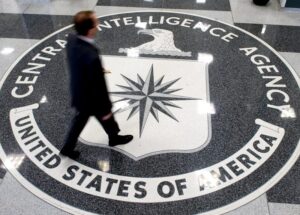
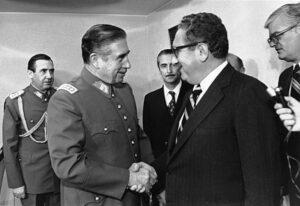
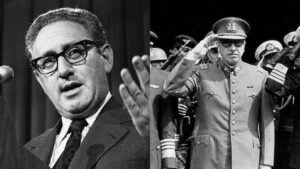
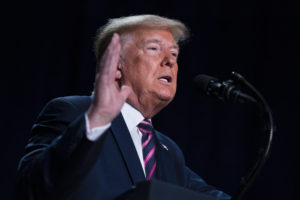



You need to be a supporter to comment.
There are currently no responses to this article.
Be the first to respond.